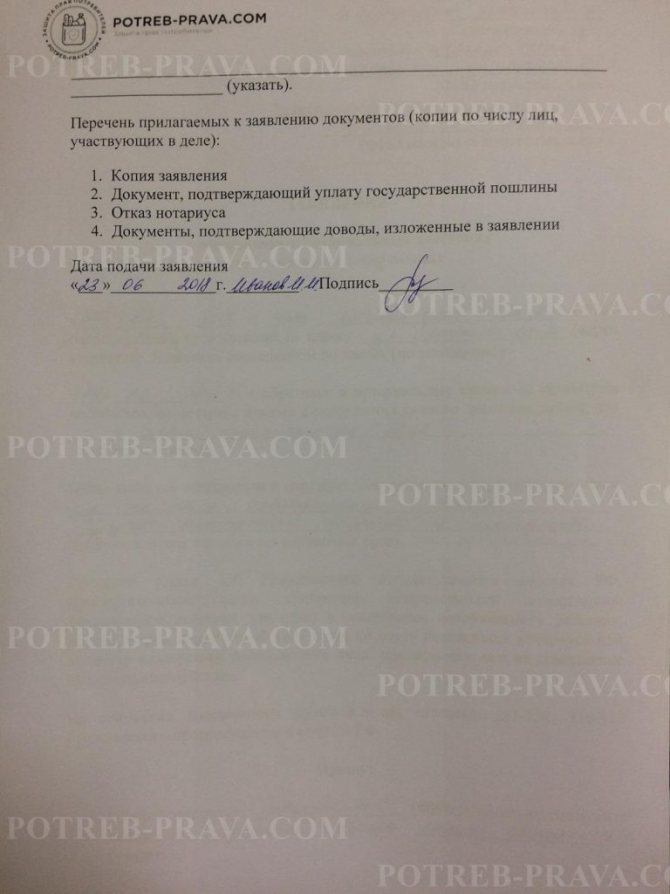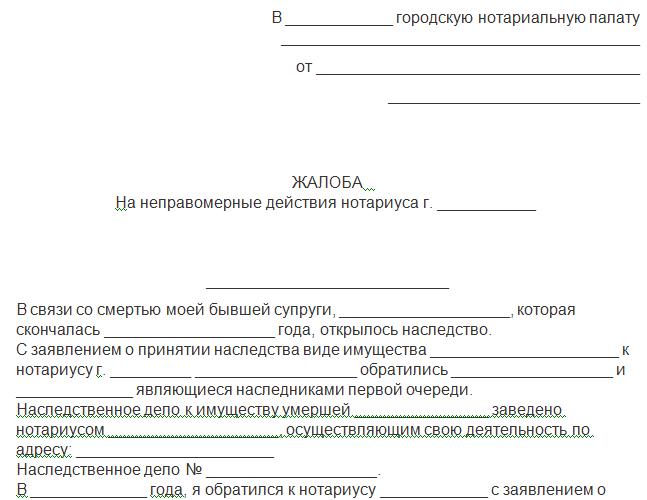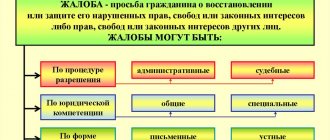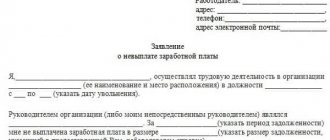Home » Inheritance » Where and to whom to complain about a notary
9
A notary is a person authorized by the state to perform notarial acts. In his activities, he acts as a defender of the rights and legitimate interests of subjects of civil legal relations. The main principles of notarial activity are impartiality, compliance with the Constitution and other legal acts of the Russian Federation, and notarial secrecy. If the client believes that the actions of the notary are unlawful, he can file a complaint against him.
How to properly file a complaint against a notary in a notary office
Current Russian legislation gives notaries not only certain powers (for example, to certify the validity of transactions or the authenticity of documents), but also specific responsibilities in relation to citizens who apply for legal assistance.
If a lawyer commits actions that raise doubts about his competence or competence, the law provides the opportunity to file a corresponding complaint.
An appeal protesting the activities of a notary should not contain offensive language, threats, emotional statements, assumptions or value judgments.
Important! It is necessary to present only the factual side of what happened, which contains signs of violations and can be proven. It is also advisable to refer to violated legal norms and provisions of specific agreements.
Practicing human rights activists recommend adhering to the following rules for drawing up and structuring claims:
- the introductory part (upper right corner) contains: the full name and details (indication of the government body, full name of the official, postal identifiers, etc.) of the addressee, as well as contact information of the originator of the document and the person in whose interests it acts;
- title of the document: for example, “statement on refusal to perform notarial acts”;
- the descriptive and motivational part necessarily involves a presentation of the essence of the case - a chronologically consistent indication of the facts, circumstances, participants and other significant details of the event that took place;
- the operative part with the requests and (or) demands of the applicant;
- a list of attached documentary evidence substantiating the complaint and proving the illegality of the notary’s actions;
- date of compilation and signature of the person applying.
Current legislative provisions allow simultaneous filing of claims in two instances.
ATTENTION! Look at the completed sample complaint against a notary to the notary chamber:
Grounds for complaint
Important! Please keep in mind that:
- Each case is unique and individual.
- A thorough study of the issue does not always guarantee a positive outcome. It depends on many factors.
To get the most detailed advice on your issue, you just need to choose any of the options offered:
- Request a consultation via the form.
- Use the online chat in the lower corner of the screen.
- Call:
- Moscow region: +7
- Leningrad region: +7
- Federal number: +7
The following circumstances may be the reason for filing a complaint against a notary:
- Unreasonable delay in the process of consideration and decision-making on issues of obtaining property rights.
- Requests for documents in excess of the required package established by law and other legal regulations.
- Intrusive offers of additional services for a fee or their inclusion in the list of required services without the client’s consent.
- Refusal to consider the issue of transferring ownership and taking possession of real estate and other property.
- Incorrect behavior when communicating with a client, rudeness.
- Bribery and creation of corruption schemes.
- Transfer of client and transaction data to third parties.
This list of claims is incomplete. You can complain about a lawyer’s work if there are any suspicions of violations or conflict situations. Higher authorities will help to understand the problem and establish the level of responsibility for the perpetrators, if they are identified.
Procedure for filing a complaint
To protest illegal actions or decisions of a notary, you must send a complaint to:
- to the regional notary chamber, if the lawyer is a private practitioner;
- to the territorial division of the Ministry of Justice of Russia, if the official is an employee of a state notary office.
Both a personally interested citizen and his representative, a lawyer acting by agreement, can file a complaint.
What power does a handwritten receipt not certified by a notary have?
Does a common-law wife have the right to inheritance after the death of her husband? Read here.
Who can claim an inheritance if there is a will, read the link:
The location, details and contact information of officials of notary chambers of the constituent entities of the Russian Federation can be found.
In the submitted application, you must concisely and succinctly reflect the essence of the controversial situation, justifying your position with attached copies of written evidence.
Watch the video. Notary and his responsibilities:
Who controls the work of the notary, to whom to complain
Conflicts and irregularities in the work of a notary must be reported to the following authorities:
- Ministry of Justice of the Russian Federation. You can send a complaint to the address 119991, GSP-1, Moscow, st. Zhitnaya, 14, or submit your request during a personal visit. Registration is carried out by telephone call to the number. Complaints are also accepted online. You can leave it in the contact form by following the following link. Citizens in other cities can contact local departments of the Ministry of Justice.
- Notary Chamber. It is authorized to conduct investigations into violations in the work of notaries together with the Ministry of Justice. You should complain to the Chamber of Notaries at your place of residence. You can see the list of addresses of regional offices by following the link. A sample complaint can be downloaded from this link.
- Prosecutor's office. This authority is contacted to appeal decisions of officials. Requests are sent to the place of application. The address of the nearest representative office can be found at the link. Complaints can be sent by Russian Post in the format of a registered letter, through an online form on the website using the link, as well as during a personal visit to the institution. A sample application can be downloaded from the following link.
- Court. Within 10 days from the moment of the violation or direct conflict, the injured party has the opportunity to appeal to the district court. The complaint should be sent to the place of registration of the notary. You can download a sample claim from this link.
Terms of consideration
An appeal received by a regional notary chamber or a territorial department of the Ministry of Justice initiates an audit of the activities of the relevant specialist.
As a general rule, the period of such verification should not exceed 30 days, starting from the moment of registration of the application. The competent authorities and officials are required to notify the applicant about the results of the review.
Situations cannot be excluded when the period for consideration of an application may be extended due to the need to send requests or carry out other verification activities that require additional time. The law allows such an extension, but not more than 30 days.
In this case, the inspecting entity is obliged to notify interested parties about this.
The facts confirmed in the complaint are the basis for applying disciplinary sanctions to the notaries under control in the form of a reprimand or reprimand.
Notaries and inheritance
Despite the fact that the field of activity of notaries is quite extensive (notarization of transactions, authentication of documents, storage of securities, etc.), the most frequently occupied issue is the registration of inheritance transactions (wills, gift agreements).
How to understand which addresses (and inheritance issues) a particular notary is responsible for? According to the Law, it is customary for notary specialists to assign responsibility for certain areas. Read on to see how this is done:
- A section of addresses is determined that is attached to a specific notary;
In the event of the death of the testator on the assigned plot, the notary by default conducts the inheritance procedure between his heirs, even if during his lifetime the testator did not draw up a will or deed of gift.
If there is a state notary office on the site, then it is she who determines the management of the site. If there is no state-type notary office on the site, then a private notary office is in charge of the site.
- Distribution of inheritance transactions according to the initials of the deceased;
What does it mean? When notaries are too busy, the areas for which they are responsible are assigned to the letters of the initials of the deceased testator;
- According to the location of most of the inherited property;
Example: the testator left behind three apartments, two of which are located in Leninsky, and one in the Zavodsky district. The management of the inheritance will be handled by the notary who is responsible for the Leninsky district, since most of the inheritance is located there.
- If the inheritance of the deceased testator is included in the state program “Inheritance without Borders,” then a notary from any district, region or subject of the Russian Federation can handle its distribution;
From the above it follows that the distribution of the inheritance should be handled by the notary specialist who is responsible for a specific area of addresses. As a rule, this site is a separate area of the city.
Private and public notaries
In Russia, notarial acts are performed by state and private offices. To certify the signature on a document, the accuracy of a photocopy, translation, or certify the fact that a citizen is in a certain place, you have the right to contact any notary of your choice. However, in the case of registration of inheritance, it is not possible to independently select an official, which often leads to controversial situations.
If instead of a notary an administration official
The law allows, in the absence of a notary in the area, to engage one of the administration officials to perform his duties. The head of administration can deal with these issues.
The activities of such an official are regulated by special instructions and controlled by local justice authorities. The application, if necessary, is submitted to the local department of the Ministry of Justice. If he is sent to the local notary chamber, she will not deal with it, but will forward it to the department of the ministry.
The situation is similar with complaints against other officials acting as notaries: commanders of military units, ship captains, chief doctors of medical organizations.
This is indirectly confirmed by samples of complaints to the notary chamber against a notary.
Grounds for filing a complaint
The rights and obligations of notaries in Russia are quite strictly regulated by law, and the consequences of their dishonest attitude to work can be very serious.
This implies the unconditional possibility of appealing any violations committed by the lawyer, including:
- non-compliance of the executed or certified document with the law;
- failure to comply with deadlines for transferring documents under a power of attorney;
- lack of professionalism, which resulted in infringement of the client’s interests;
- neglect of the regulatory legislation of the Russian Federation (provision of notary services without a license, certification and support of illegitimate transactions, etc.);
- unmotivated refusal to perform duties provided for by law;
- inaction;
- bias in identifying identity, verifying copies of documents, etc.;
- loss of documents transferred by the principal for storage.
Note! It is strictly not recommended to discuss your intention to appeal against his actions or inactions with a notary. An agreement for the provision of notary services already provides the lawyer with a fairly strong defensive position, and notification of the planned “slander” will give him additional advantages.
Therefore, it is more advisable to contact a higher authority directly, but in this case it is necessary to collect convincing evidence of the offense.
Rules for filing a complaint
A complaint against the actions or inaction of a notary must be drawn up in a strictly established manner and contain the following information:
- name of the regulatory authority to which the application is sent;
- Full name, contact details of the applicant;
- the nature of the complaint with a full statement of the situation, including names, dates and addresses;
- a list of applications that are submitted as evidence;
- date and signature of the applicant.
If the application is submitted in person, it should be made in two copies. The first will remain under consideration by the regulatory authority, and the second with a registration mark should be retained by the applicant.
Who has the right to complain?

Both the interested person and his representative have the right to appeal the actions of a notary. As a rule, lawyers act as representatives here upon presentation of a power of attorney.
It is recommended that the appeal itself be drawn up on behalf of the interested person and signed by him. But it is more advisable to entrust the submission of a document to the competent authorities and promptly resolve all related issues to specialists who have the necessary experience.
Attention! Our qualified lawyers will assist you free of charge and around the clock on any issues. Find out more here.
Appealing the actions of a notary in court
Who can complain about a notary if the disciplinary measures that the Ministry of Justice or the Notary Chamber can apply are not severe enough compared to the violation committed by the notary?
In this case, going to court will help, since it has broader powers and can bring the notary not only to disciplinary, but also to administrative, civil and even criminal liability. The judge has the right to remove the notary from his position. In addition, the court may oblige the notary's representative to reimburse the client for expenses incurred by him (for example, in the case of overestimation of the cost of services provided).
There is no need to file a complaint - you will need to prepare a statement of claim, indicating the notary as a defendant. In general, the structure of the document will be similar to that used when drawing up a regular appeal; only the title of the document will have to be changed.
So, where to complain about a notary if necessary is defined quite clearly by law. Complaints against government specialists are accepted and considered by the Ministry of Justice of the Russian Federation and its territorial divisions. Appeals regarding notaries engaged in private practice are dealt with by notary chambers. In any case, a complaint can be submitted in person, by mail or via the Internet (control authorities have the ability to accept electronic applications). The appeal must state the essence of the problem that has arisen and provide evidence of the unlawfulness of the lawyer’s actions. You can also appeal against unlawful actions of a notary by contacting the prosecutor's office or court.
What to remember
It is not without reason that notaries belong to the category of the most legally literate professionals. The selection of candidates for this job is carried out according to strict requirements, so it is almost impossible to meet “unsavvy” people here.
Given this, lawyers and other practitioners advise against being too hasty in appealing.
It is important to ensure that there has actually been a violation of specific legal provisions. If such confidence is absent, the complaint is initially futile.
It is advisable to prepare the text of the appeal with the help of a lawyer.
He will help:
- establish which provisions of legal acts were violated;
- select the necessary wording that is appropriate when drawing up a specific complaint;
- determine the viability of final requirements and requests;
- indicate the list of required evidence.
The existing judicial practice of considering complaints against notaries is quite scarce. For the most part, the subjects of disputes are the transactions themselves that were certified, and not the fact that they were recorded by a notary.
This is the main indicator of the complexity of the procedure for challenging the actions of lawyers engaged in the type of activity in question.
Obligations and responsibilities of a notary
According to the regulations, the main responsibilities of a notary are:
- support for Russians to exercise their rights;
- explaining to the parties to the transaction their rights and obligations, as well as legal consequences;
- notification of the Federal Tax Service about the issuance of documents for inheritance;
- compliance with notarial secrecy;
- refusal to certify transactions that are contrary to the law.
If a specialist violates at least one of the above points, this is the basis for filing a complaint against him with the relevant authorities. The culprit may be subject to various types of liability based on the severity of the offense:
- disciplinary;
- administrative;
- criminal

Where else can you go?
It should be noted that the above-mentioned appeals to the notary chambers of the constituent entities of the Russian Federation or territorial divisions of the Ministry of Justice of Russia can only lead to the application of disciplinary measures.
Nevertheless, there is no need to neglect this authority, at least in order to have an appropriate decision in hand for the purpose of its further use.
If the interested party plans to seek a more serious punishment for the notary, you can send a complaint to:
- Federal Notary Chamber of Russia. It is allowed to send it either by mail of the Ministry of Communications of the Russian Federation or via the Internet telecommunications network to the email address [email protected] ;
- Prosecutor's Office;
- court.
Since claims to the Federal Notary Chamber of the Russian Federation may be similar to those discussed above, we will dwell in more detail on prosecutorial and judicial consideration.
To the Prosecutor's Office
In accordance with the current Federal Law of January 17, 1992 N 2202-1 “On the Prosecutor’s Office of the Russian Federation,” employees of this supervisory body are obliged, within the limits of their competence, to resolve applications, complaints and appeals from citizens indicating violations of laws.
The text of a written appeal to the prosecutor's office must contain:
- name of the relevant department of the supervisory agency;
- Full name of the document originator;
- a detailed statement of the facts, participants and other circumstances of the offense (identification data of the subjects, dates, location of the violation, etc.);
- an indication of the final result sought by the interested party;
- a list of copies of documents attached to the complaint confirming the validity of the requirements;
- date;
- signature.
The inspection ordered in response to such an application will be aimed at a comprehensive and objective examination of the facts specified in the document.
ATTENTION! Look at the completed sample complaint against a notary to the Prosecutor's Office:

Where to complain about a notary
If a citizen has a firm intention to write a complaint, then he needs to contact the following authorities.
Notary Chamber
Since private notaries are subordinate to this organization, you need to try to resolve the conflict here. Such an organization is present in every subject of the Russian Federation, so finding it will not be difficult. The chamber considers the citizen's appeal and makes a decision on the punishment of the notary. Such measures include a reprimand, reprimand or severe reprimand.
Important! When a citizen is not satisfied with the decision of the Notary Chamber or his complaint has not been considered at all, he can appeal to higher authorities.
The complaint should not be drawn up in any form; there is an established template for this. Review by the Notary Chamber takes 30 days from the moment the complaint is received in writing and registered. If deadlines are violated, the client must be notified of the reasons for this and a deadline for when everything will be done. During the investigation, the Chamber of Notaries must carefully check all the circumstances of the controversial case.
Read also: Division of a car (car) during a divorce
Prosecutor's office
It is advisable to contact the prosecutor's office if the client has doubts about the legality of the notary's actions. Such a complaint is filed with the territorial prosecutor's office located in the same region where the notary office operates.
As soon as the application has been accepted, the prosecutor must begin checking all the circumstances of the case for compliance with regulations and laws. The complaint is sent by letter by mail or brought in person. If desired, the client can file a complaint on the website of the Prosecutor General's Office of the Russian Federation.
Court
It will be possible to appeal the actions of the notary in court. This is stated in Art. 37 Code of Civil Procedure of the Russian Federation. If a notary refuses to perform some work or his actions seem unlawful to the client, then he files a claim in court. This must be done no later than ten days after detection of violations on the part of the official (notary).
According to the law, the court hearing must be held with the participation of both parties. However, if someone does not arrive at the appointed time, the case will be considered in his absence. In cases where the citizen’s claim is satisfied, the notary will either be required to perform a notarial act, which he previously refused, or his notarial act will be cancelled.
The court is a last resort; it is used when all previous authorities have failed to satisfy the citizen’s claims.
Important! The statement of claim requires that you specify the notary's details as accurately as possible, as well as all the circumstances of the refusal to perform notarial acts, or the observed violations. The statement of claim is accompanied by evidence confirming this fact.










